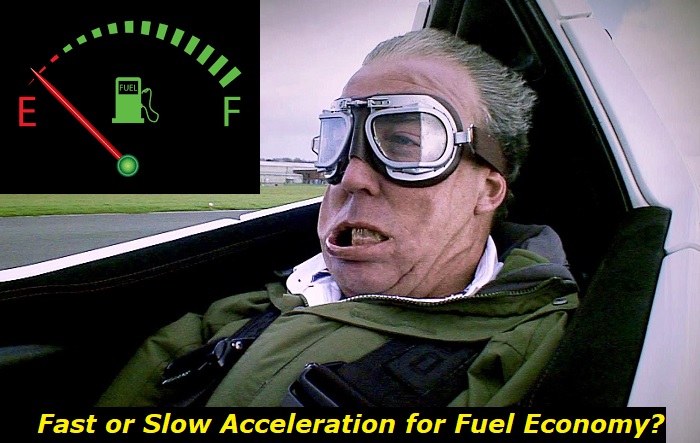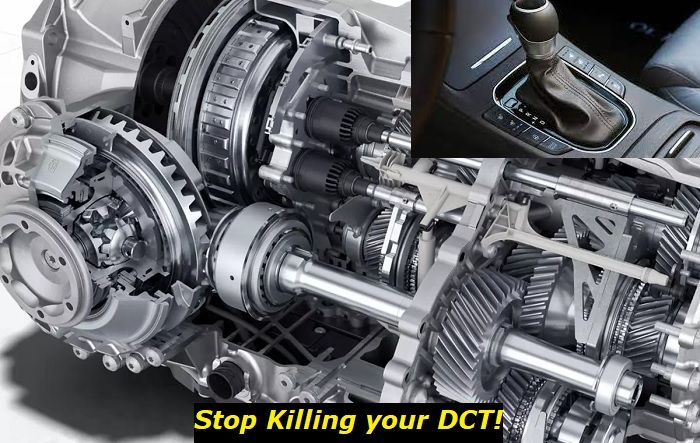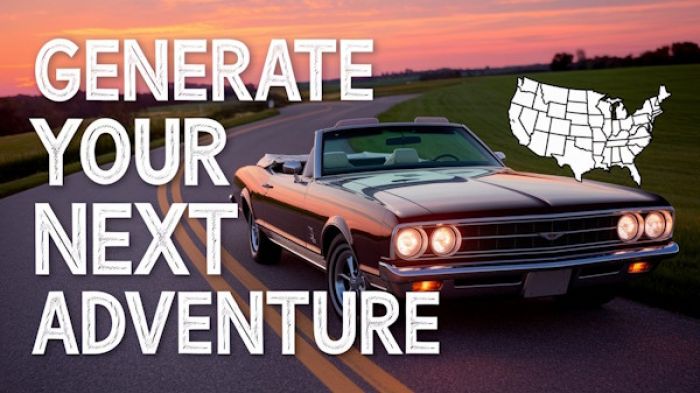Both too-slow and too-fast acceleration are bad for fuel economy. It's important to find the mode of acceleration that would be appropriate for your vehicle. For example. smaller engines need slower acceleration while more powerful machines would not mind accelerating your vehicle faster than average.
Engine use tips highlights
- Level of importance:important
- When done:driving the vehicle, maintaining the engine
- Cost of mistake:$250 - $350
- How to avoid:read advice, read driver's manual
- Consequences:bad efficiency, shorter engine lifespan, engine problems
- DIY solutions:possible

Why is acceleration important for fuel economy?
If your car has a gas mileage meter among its options in the trip computer, just set it for several days and have a look at its readings. Be careful though - you need to concentrate on the road and only sometimes have a quick look at the meter. So, what will you see there? When you go on an empty road with a constant speed, you see that the mileage is just magically great. But what happens when you press the gas pedal?
The acceleration itself is achieved by pressing the gas pedal, sending more air and fuel into the combustion chamber, and getting those revs up. This makes the engine produce more power and torque.
Here's what happens with your fuel:
- once you press the pedal, a lot of fuel is injected into the combustion chamber - dozens of times more than if you just drive;
- this fuel is accompanied by strong airflow and this leads to more powerful explosions in the combustion chambers;
- this gives your car a strong boost in power and it accelerates much quicker than before;
- after some time, you release the pedal a little and the flow of fuel and air gets slower which limits the consumption;
- when the car is at its optimal speed, you just hold the gas pedal a little pressed to maintain the constant speed, and here the consumption is optimal.
So, on the one hand, your task is to achieve optimal consumption as fast as you can, so you may tend to accelerate faster if you think about this. On the other hand, you may choose to accelerate slowly to avoid an extra powerful boost in the amount of fuel injected into the cylinders. This works with all ICE engines including gasoline, diesel, and even hybrid powerplants.
But how should you act? Should you hurry up to achieve the optimal speed and start economizing the fuel? Or should you avoid pressing that gas pedal hard? Let's think about this!
Fast acceleration - does it help to economize your money?
There are quite a lot of drivers who believe that accelerating fast is a great way to achieve the optimal speed faster and to economize fuel. You may now get the logic behind this theory. But, unfortunately, it doesn't work in real life.
The reason for this is that when you press the gas pedal hard, a large amount of fuel is just wasted. The immediate gas mileage may fall to 2-3 MPG when you are pressing the pedal hard. And if you do this several times a day, the overall mileage will also not be perfect.
Here's what happens:
- once you press the pedal, a lot of gas is injected immediately into the engine;
- the engine just can't burn everything, so some fuel is just wasted;
- also, the immediate consumption is disastrous even though it doesn't last long;
- in the end, you get quite bad gas mileage and other issues with the vehicle.
You should also remember that very fast acceleration is only OK for sport-oriented vehicles. If you are driving just an average sedan or SUV, you will most likely kill it quite fast if you accelerate very fast after every other traffic light. This will affect the vehicle's engine, transmission, injection system, brakes, etc.
So, fast acceleration is not about the good gas economy at all.
Slow acceleration - why isn't it helpful?
After reading the previous part of this article, you may have noticed that fast acceleration is one of the enemies of a good gas economy. So, you may decide to accelerate like a turtle. But I should warn you that this won't help you achieve optimal gas consumption in your vehicle.
Slow acceleration keeps the engine at a higher RPM for a longer time thus creating the problem of over-consumption. Your task is to get to the optimal speed and RPM quite fast and drive at a constant speed.
Here's what happens when you accelerate slowly:
- you press the gas pedal a little harder than you do it when you move with a constant speed;
- this leads to more fuel coming to the combustion chamber through injectors;
- this takes some time because your acceleration is quite slow and you need time to get to the desired speed;
- then, you see another traffic light or crossroad before you actually achieved the needed speed;
- you brake and then start accelerating slowly again;
- in the end, your engine constantly works at a higher RPM and tries to accelerate the vehicle.
If you test this type of driving with the immediate fuel consumption meter on your screen, you will immediately see that this is a bad method for the gas economy. Your MPG will almost always be above average. Yes, it won't be as high as when you are accelerating fast. But the MPG won't ever go down to normal. So, the average MPG will be quite bad.
Finding the best acceleration pattern for your vehicle
It's important to feel your vehicle and to understand what kind of acceleration is optimal for it. The majority of modern cars love moderate acceleration. In this mode, they will burn a limited amount of fuel and will quite quickly get to the optimal speed without using excessive amounts of gas and energy.
Interestingly, this theory even works with electric cars because what your car consumes when it accelerates is energy. And it doesn't matter much where it takes this energy from.
So, here are some ways to find the best acceleration pattern in your vehicle:
- Use your immediate fuel consumption meter. Find the pattern which allows you to accelerate quite fast without crossing the 10-14 MPG limit.
- Apply day-long tests. The best acceleration for your car is the type of acceleration that provides you with the best fuel economy. Try different types for a day or for a week and then register the consumption. Compare your figures and you will know what's best for the car.
- Watch detailed reviews. When good journalists test-drive cars, they usually quickly find the optimal ways to accelerate these cars. And this allows them to give more information on the best acceleration for this certain vehicle.
- Listen to your engine. If the engine is vibrating and screaming, you are doing something wrong. Don't kill the engine just because you want faster acceleration.
- Look at the RPM. When you are accelerating too fast, the RPM will go up because the transmission will allow you to drive actively. Choose the mode which will allow you to keep the RPM lower than 3000 at all times.
Using these simple tips, you will be able to achieve optimal fuel economy. Of course, this will also allow you to achieve the best driving habits for prolonging the life of your engine and transmission. Too fast acceleration clearly kills the engine and the transmission and will lead to quite expensive repairs and other problems.
What can be the difference in fuel consumption?
The difference can be huge. Let's take one example. The Honda CR-V with the 2.4L engine and 5-speed automatic transmission will normally show 21-22 MPG in the city. It's not that bad for such a car. But this is the gas mileage that comes with the optimal acceleration.
When you press the pedal hard to get faster, you will see about 15-16 MPG. When you accelerate too slowly and keep the engine longer at a higher RPM, the CR-V will show about 18 MPG in city traffic.
Of course, there are other factors like traffic intensity, type of fuel, weight of cargo, etc. But the difference between normal consumption and gas mileage with wrong acceleration can be pretty high - up to 30%. So, it's certainly worth paying attention to this!
I hope now you can find the best acceleration style for your vehicle. If you still have any questions, please ask them in the comments below.
About the authors
The CarAraC research team is composed of seasoned auto mechanics and automotive industry professionals, including individuals with advanced degrees and certifications in their field. Our team members boast prestigious credentials, reflecting their extensive knowledge and skills. These qualifications include: IMI: Institute of the Motor Industry, ASE-Certified Master Automobile Technicians; Coventry University, Graduate of MA in Automotive Journalism; Politecnico di Torino, Italy, MS Automotive Engineering; Ss. Cyril and Methodius University in Skopje, Mechanical University in Skopje; TOC Automotive College; DHA Suffa University, Department of Mechanical Engineering






Add comment